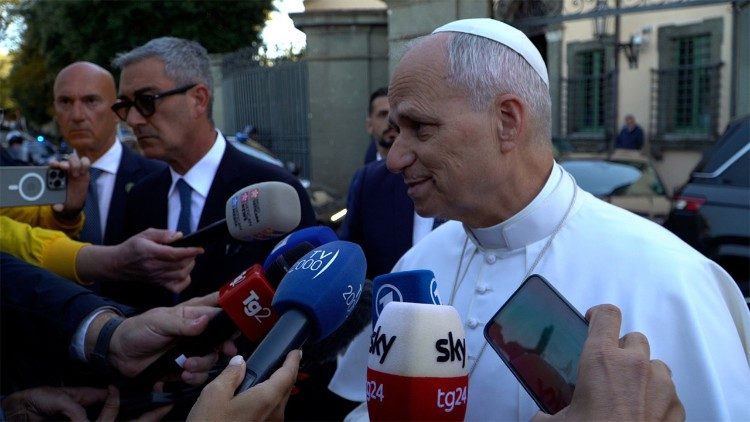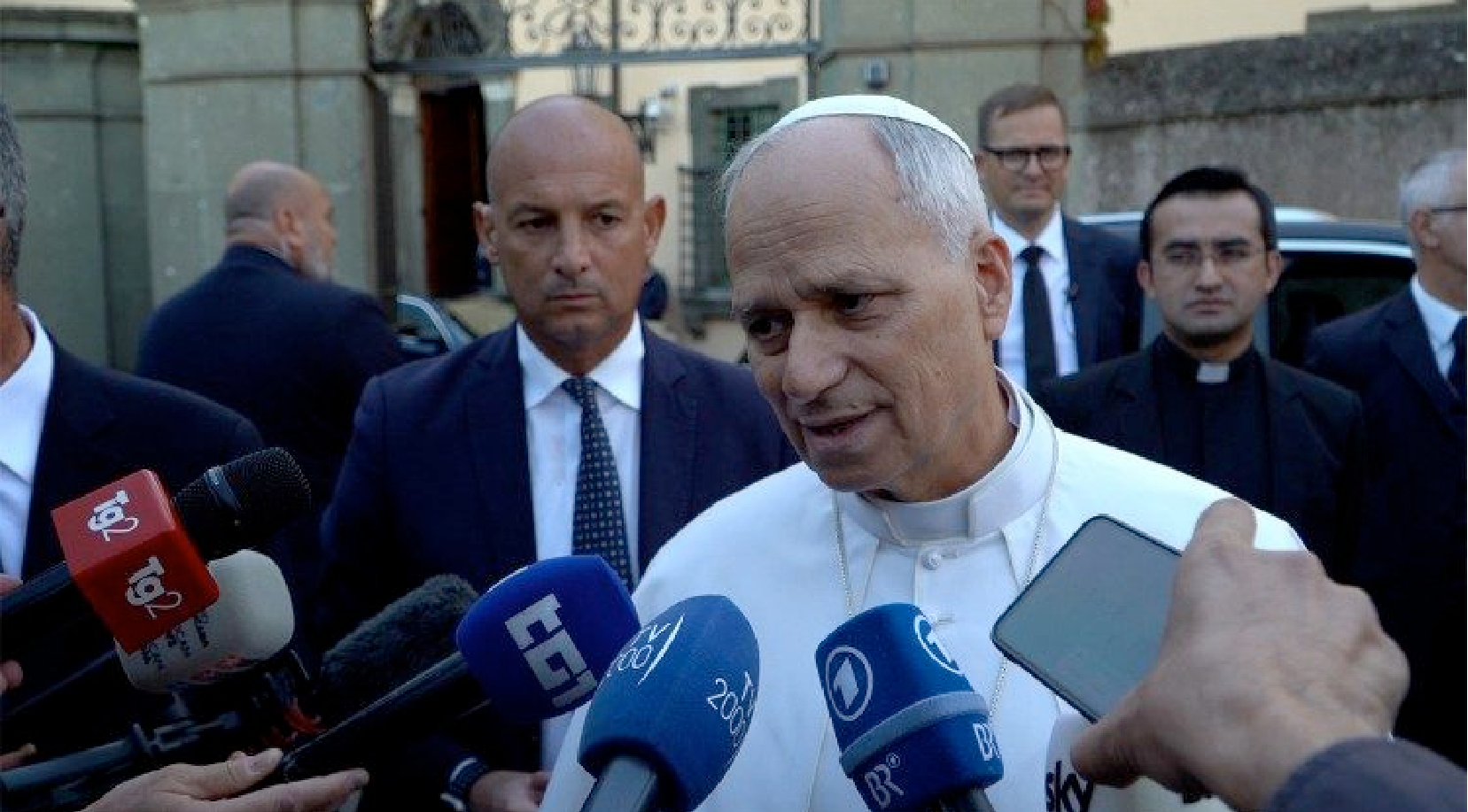(ZENIT News / Castelgandolfo, 10.07.2025).- As the sun began to set over Castel Gandolfo, Pope Leo XIV paused at the gates of Villa Barberini to speak briefly with reporters—an unscripted moment. On the day of the announcement his first apostolic journey to Turkey and Lebanon, the Pope turned his attention to the Middle East, recalling with visible emotion the Hamas attacks in Israel two years ago and the devastating toll of the ensuing war in Gaza.

“These have been two years of deep suffering,” he said, his tone both reflective and insistent. “In that terrorist attack, 1,200 people were killed. Since then, around 67,000 Palestinians have lost their lives. We must think about how much hatred there is in the world and ask ourselves what we can do. We need to lessen the hatred, regain our capacity to talk to one another, to seek paths of peace.”
It was not the first time Pope Leo XIV had spoken about the Middle East crisis, but his words carried renewed urgency. Without hesitation, he condemned terrorism and the resurgence of antisemitism, calling both “expressions of the same moral blindness.” “We cannot tolerate groups that spread terror,” he continued. “Hatred has no justification in any faith or ideology. And antisemitism, whether growing or hidden, must always be rejected. The Gospel calls us to peace, and peace begins with respect for the dignity of every person.”
The Pope’s comments came in the wake of controversy stirred by Israel’s embassy to the Holy See, which had criticized Vatican Secretary of State Cardinal Pietro Parolin’s recent interview as undermining peace efforts. Asked about it directly, Leo XIV defended his chief diplomat without hesitation: “The cardinal expressed very clearly the Holy See’s position,” he said.
The recent interview with Cardinal Parolin, though surely well-intentioned, risks undermining efforts to both end the war in Gaza and counter rising antisemitism. It focuses on criticizing Israel while overlooking Hamas’ continued refusal to release hostages or stop the… pic.twitter.com/CVmDRVSkbf
— Israel in HolySee (@IsraelinHolySee) October 7, 2025
The conversation soon turned toward his upcoming pilgrimage to the Middle East—a region the Pope described as “a crossroads of wounds and hope.” The trip, set for November 27 to December 2, will include stops in Turkey and Lebanon, carrying a double significance. Turkey will commemorate the 1,700th anniversary of the Council of Nicaea, a milestone that, according to the Pope, “reminds Christians that unity in faith is not a relic of the past but a task for the future.”
“It is a journey Pope Francis had long desired to make,” he explained. “For all Christians, it will be a moment of genuine unity in faith. We look back to the Council of Nicaea not to dwell on the past, but to look ahead—to what the Spirit is asking of us today.”

Lebanon, the second stop on the trip, will carry a distinctly pastoral tone. Since the catastrophic port explosion in Beirut in 2020, the country has faced economic collapse and social despair. Pope Leo XIV said he hopes to bring “a message of peace and hope” to a people “who have suffered immensely.” He added, “Pope Francis also wanted to embrace the people of Lebanon after that tragedy. We will go there to carry that same embrace—to remind them that the Church has not forgotten.”
Before departing for Rome, where he was scheduled to meet a group of Croatian pilgrims later that evening, the Pope invited all believers to dedicate this month to prayer for peace. “The Church,” he said, “must keep praying and promoting dialogue in every way possible. The Lord’s call to peace is not an abstract idea—it is a mission we must live.”
Thank you for reading our content. If you would like to receive ZENIT’s daily e-mail news, you can subscribe for free through this link.

